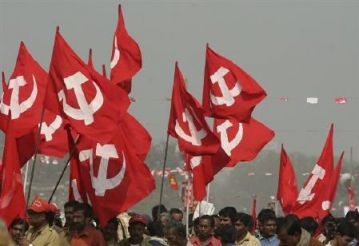India communist party asked not to use images of Catholic saints

An official from the Catholic Church in Alappuzha has asked the Communist Party of India (Marxist) to cease using the pictures of Indian Catholic saints in an apparent bid to gain votes in the Kerala region.
According to the Indo-Asian News Service (IANS), the CPI-M has decorated several roads to Alappuzha in bright red colours and the pictures of two Indian Catholic saints in preparation for their annual state party conference.
IANS reported that the image of India's first Catholic saint, Saint Alphonsa, had been placed near a church in Aroor, Alappuzha together with recently canonised saint Father Kuriakose.
The usage of the image was not taken positively by the Syro Malabar Catholic Church.
"If this (putting pictures) is a move to get a few votes by the CPI-M, then it would be a hypocritical move," the Church said through its spokesman, Paul Thelekkat.
Thelekkat also urged the Communist Party to take to heart the teachings of the two saints and learn lessons from them, instead of using the images in a political context.
Senior legislator for the CPI-M Raju Abraham denied the hypocrisy stating that they are only going to have a state party conference and "not an election."
"We have done this in the past too and nothing more needs to be seen into this," Abraham told IANS.
Thelekkat, however, noted the improvement in the Communist Party's policies towards religion. The spokesperson for the Syro Malabar Catholic Church then compared the party with the ruling Bharatiya Janata Party, stating that the BJP should "evolve in a similar manner."
The BJP is noted for its hard-line, pro-Hindu stance. Prime Minister Narendra Modi has been criticised for his lack of action in the wake of radical attacks on Christian churches across India, although the Prime Minister recently spoke to Christians during a gathering to celebrate the canonisation of Kuriakose Elias Chavara and Mother Euphrasia at Vigyan Bhawan, and said that his government will "ensure that there is complete freedom of faith."











